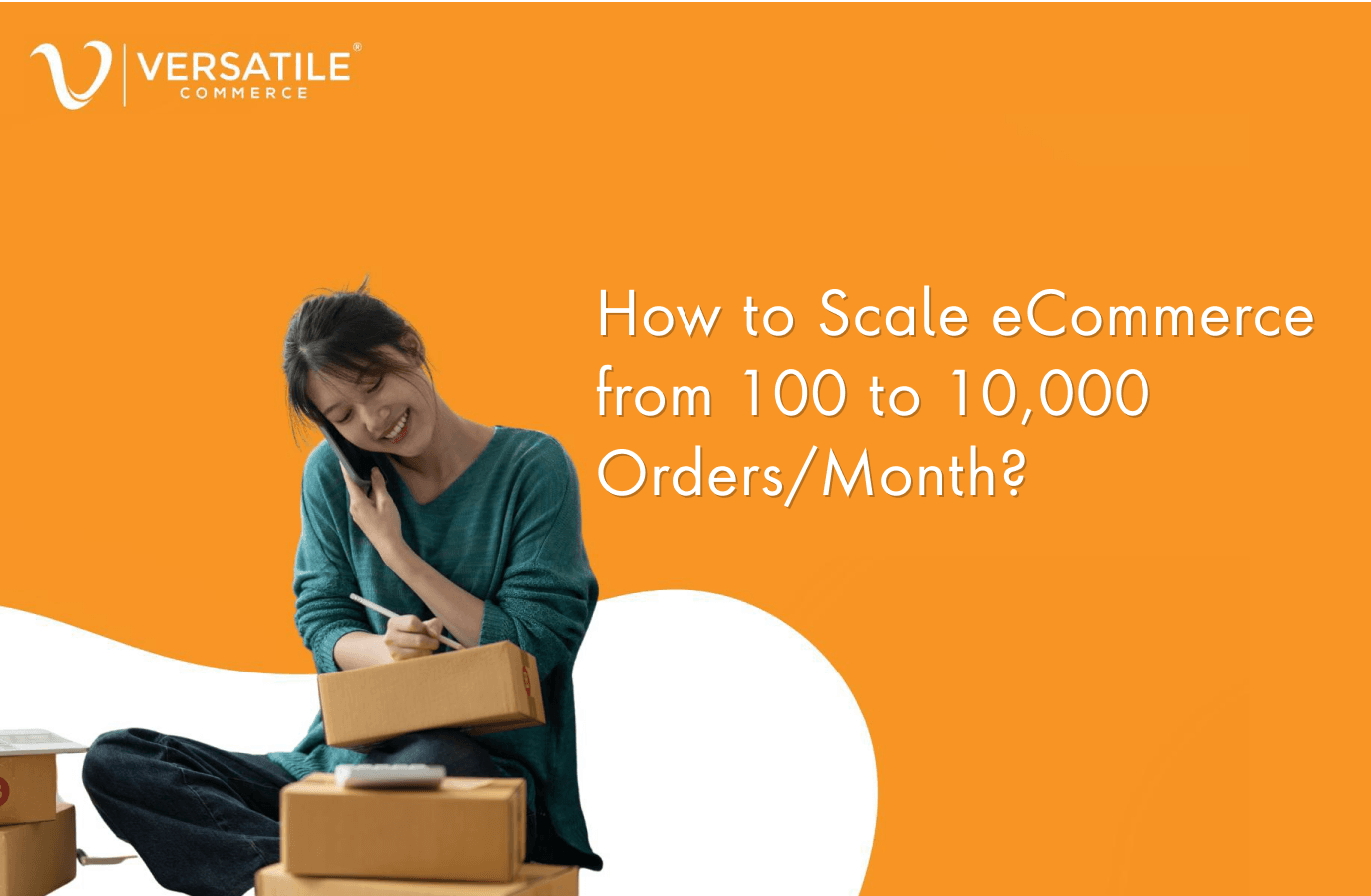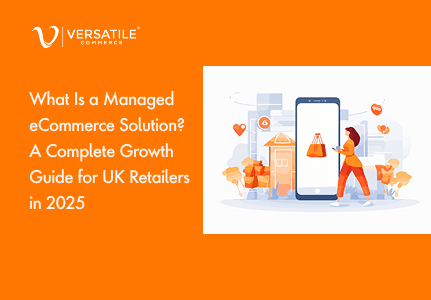
What is eCommerce?
eCommerce, or electronic commerce, refers to the buying and selling of goods or services via the Internet. It's a broad term that encompasses different types of online transactions between businesses and consumers.
It is important to note that ecommerce has been in existence for a very brief history of about 25 years as we know it today. The first online purchase was conducted on the website called NetMarket, which can be considered the beginning of ecommerce. Fast forward to the 1990s, and the launch of Amazon (1994) and eBay (1995) marked the beginning of consumer-driven ecommerce.
With the growth of digital infrastructure and advancements in mobile technology, eCommerce has swiftly emerged as a key driver of the global economy, enabled by the evolution of sophisticated platforms, digital payments, and global supply chain networks that make online shopping convenient for billions of users.
In 2021, global ecommerce sales reached approximately $4.9 trillion, and they are expected to rise to $7.4 trillion by 2025, driven by increased digital adoption, mobile penetration, and logistical advancements (McKinsey, 2021). According to Criteo's Future of eCommerce report, ecommerce’s share of global retail sales could exceed 30% by 2026.
eCommerce trends
Today, ecommerce is rapidly evolving with trends like:
Mobile Commerce (mCommerce)
The rise of smartphones has given birth to mobile commerce, which now accounts for more than 50% of all ecommerce transactions. According to Gartner, mobile traffic is expected to surpass desktop by a wide margin in 2024.
AI and Personalisation
The increasing use of AI and data analytics allows ecommerce businesses to provide personalised customer experiences, which can significantly improve conversion rates. According to McKinsey, 71% of consumers now expect personalised interactions from the companies they engage with, and 76% become frustrated when these expectations aren’t met.
Omni-Channel Retailing
Companies are focusing on creating a seamless customer experience across digital and physical touchpoints. PwC’s Global Consumer Insights Survey found that 73% of consumers want a consistent omnichannel experience from their preferred brands.
Sustainability
With increasing environmental awareness, consumers are prioritising eco-friendly products. 60% of global consumers are now willing to pay a premium for environmentally friendly products. This shift is influencing both product development and fulfillment processes in the ecommerce space.
Voice Commerce
The rise of smart home devices, like Amazon Alexa and Google Assistant, has facilitated the growth of voice commerce. While still a smaller portion of the overall market, voice commerce is expected to grow rapidly as consumers become more comfortable using voice commands for search and purchase.
Social Commerce
Platforms like Instagram and Facebook are integrating shopping experiences directly into social media, allowing consumers to discover and purchase products without leaving the app.
Overview of eCommerce platforms
Shopify
Shopify is among the most popular platforms at the moment and is especially famous for its easy-to-navigate interface and a vast array of apps in its marketplace. Shopify powers over 1.7 million businesses globally and offers essential tools for entrepreneurs, including payment processing, customisable shopfronts, and inventory management. Shopify is a fully hosted platform with an easy drag-and-drop builder, has extensive third-party app integrations, built-in SEO tools, and marketing capabilities.
Magento
Magento (now part of Adobe Commerce Cloud) is known for its flexibility and ability to handle complex catalogues and custom features. It is highly scalable, making it an excellent choice for mid-sized and large businesses that require advanced functionality. Magento is open-source and customisable with advanced marketing, SEO and catalog management features. It supports multiple shopfronts, currencies and languages.
WooCommerce
WooCommerce is an ecommerce plugin for WordPress that enables you to turn your site into an online shop. That is why it is suitable for companies that already run on WordPress, as it provides complete dominion over customisation. WooCommerce is easy to use for WordPress users and highly customisable through plugins and extensions. It’s free to install, through additional costs may arise for hosting and premium features.
BigCommerce
BigCommerce is a SaaS (software as a service) platform that allows businesses to build their online stores with robust features, including customisable templates, mobile optimisation, and advanced marketing tools. It caters to both B2C and B2B companies. BigCommerce has strong SEO capabilities, built-in integration with platforms like Amazon, eBay and Facebook. It offers advanced analytics and reporting tools.
How to choose the right eCommerce platform for your business
When choosing an ecommerce platform, there are several key features you should consider ensuring it meets your business needs: ease of use, customisation and flexibility, scalability, payment gateway integration, SEO and marketing tools, mobile optimisation, and security.
Step 1 - Assess your Business Type and Size
If you're running a large catalogue with multiple locations, Magento or BigCommerce may be a better fit due to their scalability. Small to mid-sized businesses may find Shopify or WooCommerce more suitable.
Step 2 - Set a Budget
Evaluate both the initial setup cost and the ongoing operational expenses. Platforms like WooCommerce are free to start but may require additional costs for plugins and hosting, while Shopify offers fixed pricing plans.
Step 3 - Consider Technical Expertise
If you don’t have a technical team that can manage coding, select the platforms that would not need coding skills. Shopify and BigCommerce are perfect for starting, while Magento and WooCommerce are perfect for developers.
Step 4 - Think Long-Term
Select a platform that will cater for your present needs and can also expand with your company. This is something of importance such as scalability, cohesion, and extensibility and the quality of adding options as your store progresses.
Step 5 - Analyse Integration Capabilities
The ability to integrate seamlessly with various tools and software is crucial when choosing the right eCommerce platform. Effective integration helps streamline operations, reduce manual workload, and improve customer service. Platforms like BigCommerce and Shopify offer robust app marketplaces, making it easy to connect your store with a wide range of third-party tools for marketing, logistics, and analytics.
For instance, if you're using a dedicated ERP system to manage inventory or a CRM like Salesforce for customer relationship management, ensure that the platform supports these integrations. This is essential to maintain cohesive operations and deliver a seamless customer experience. You should also evaluate whether the platform can integrate with accounting software, customer service portals, and payment gateways.
Step 6 - Test for User Experience
Ensure the platform offers an intuitive backend for store management and an engaging user interface for customers. Take advantage of free trials to test different platforms before committing.

Client Story: Vishal Peripherals’ growth with shopify
Vishal Peripherals, a leading retailer of computer peripherals, wanted to move from a traditional store to an online platform to cater to the growing demand for gaming and computer accessories in India. They needed a scalable, easy-to-use platform that would allow them to offer a wide range of products while ensuring a seamless customer experience. As they sought to scale their business online, they partnered with Versatile Commerce’s eCommerce Managed Solutions to develop a robust solution.
Versatile Commerce chose Shopify for its flexibility, scalability, and ease of use. Shopify’s built-in payment gateways and app marketplace offered Vishal Peripherals the ability to quickly set up shop and expand their product offerings. Versatile Commerce managed the entire process, from setup to marketing, enabling Vishal Peripherals to launch their ecommerce operations within just 60 days of signing the contract.
A crucial factor in choosing Shopify for Vishal Peripherals was its ability to support integration with in-house systems and third-party apps. Versatile Commerce seamlessly integrated Vishal Peripherals' in-house ERP for inventory management and supplier communication, ensuring smooth internal operations. Additionally, Versatile Commerce utilised Shopify’s app marketplace to connect a third-party customer service portal and Salesforce for CRM, creating a unified system for handling customer queries, managing leads, and maintaining stock. This strategic integration enabled Vishal Peripherals to scale their operations efficiently and cohesively.
Unlock growth – Choose the perfect platform for your business
Choosing the right eCommerce platform is crucial to the success of your business. Whether you're a small start-up or a large organisation, it’s essential to assess your specific needs and match them with the platform’s features. Case studies can serve as a valuable guide in this process. Making the right choice will benefit your business in the long run, allowing you to focus on the most important factor—growth.



